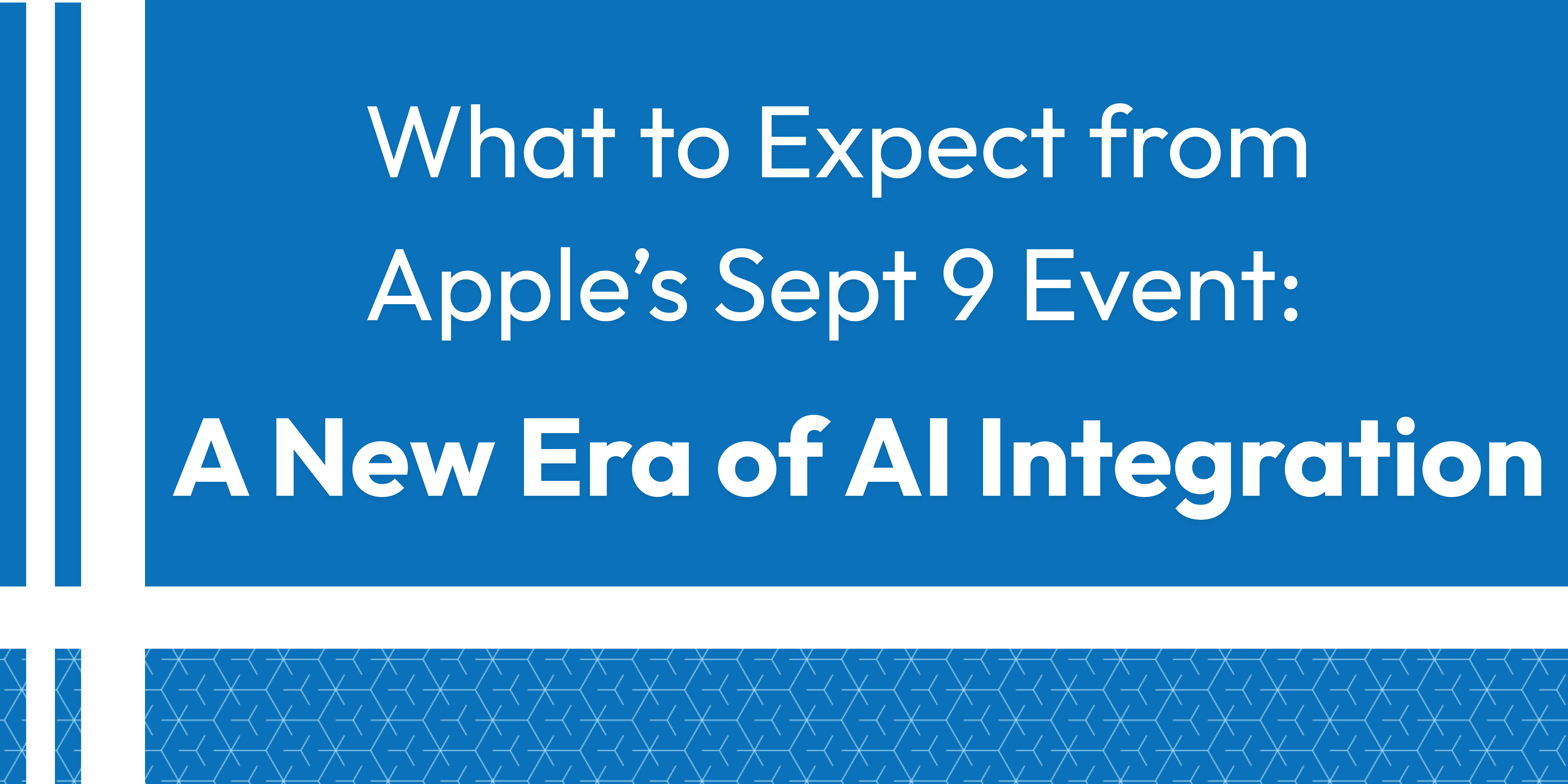
Every September, Apple captures the world’s attention with its flagship event at the Steve Jobs Theater in Cupertino, California. On September 9th, Apple will once again step into the spotlight to unveil its latest devices and innovations. As always, the iPhone is expected to take center stage, alongside updated Apple Watches, new iPads, and perhaps an upgraded version of the Vision Pro headset.
But this year, one theme is rising above all others: artificial intelligence.
Apple has been steadily weaving AI into its ecosystem, but the upcoming event could mark a turning point that redefines how everyday users interact with technology and positions Apple in the rapidly accelerating AI race.
The AI Pressure on Apple
For years, Apple has held a reputation as the gold standard of design and usability, but when it comes to AI innovation, the company has been accused of lagging behind rivals. Samsung, Huawei, and Honor have already leveraged AI to build smarter, more personalized devices. Meanwhile, companies like Google and OpenAI have made AI-powered assistants like Gemini and ChatGPT household names.
Apple, in contrast, has played it safe by waiting, perfecting, and integrating AI into its ecosystem in incremental ways. Siri, once a pioneer in voice recognition, has struggled to keep up with today’s generative AI capabilities.
That’s why all eyes are on Apple this September. Investors, consumers, and business leaders alike are asking the same question: Will Apple finally make its big AI move?
What We Might See on September 9
While Apple is famously secretive, credible reports point toward a handful of major announcements:
- The iPhone 16 (or possibly iPhone Air): Apple may introduce a slimmer model that continues its “Air” branding trend, alongside AI-powered features designed to elevate user experience. Think smarter photo editing, predictive text and communication tools, and more context-aware Siri responses.
- Apple Watches: Expect both entry-level and high-end models with enhanced health-tracking features. AI could play a role in proactive health monitoring, detecting irregularities, and even offering personalized wellness insights.
- iPad Pro upgrades: Rumors suggest more powerful chips optimized for AI tasks, blurring the line between tablets and laptops in creative and productivity use cases.
- Vision Pro 2.0: Apple’s mixed reality headset, while still niche, could see AI-powered updates for real-time collaboration, entertainment, and spatial computing.
- Operating system overhaul: Apple has teased design updates like “liquid glass” interfaces, but under the hood, AI-powered personalization and automation are likely to be the bigger story.
What ties all of these updates together is Apple’s quiet but growing emphasis on “Apple Intelligence,” its proprietary vision for how AI should live inside devices.
Apple Intelligence: A Different Approach to AI
Unlike some competitors that prioritize speed to market, Apple is known for its careful, ecosystem-first approach. That strategy is becoming clearer with Apple Intelligence, a term Apple used last year to describe its integration of AI into iPhones.
Instead of releasing standalone chatbots or experimental AI platforms, Apple appears to be embedding AI directly into the fabric of its devices. Think:
- Smarter Siri: Not just responding to commands but understanding context and proactively offering support.
- Device-level AI: AI that runs on the device itself, not just the cloud, providing faster, more private results.
- Seamless integration: AI that enhances apps like Photos, Messages, Notes, and Mail without requiring users to learn new workflows.
This approach plays to Apple’s strengths: user experience, privacy, and a tightly controlled ecosystem. It may not win the “first to market” trophy, but it could redefine how AI feels for billions of users.
Why Apple’s AI Move Matters for Business Leaders
For business leaders, Apple’s AI strategy isn’t just about new gadgets. It signals a broader trend: AI is becoming foundational to how people work, communicate, and make decisions.
Productivity tools will become AI-driven. Features like automatic summarization, predictive scheduling, and real-time collaboration will be built directly into the devices your team already uses.
Data privacy will remain critical. Apple’s emphasis on on-device processing highlights a future where businesses can leverage AI without sacrificing sensitive data.
User adoption will accelerate. When AI is embedded into the iPhone, the most widely used business device, it normalizes AI as an everyday tool rather than a niche innovation.
In short, Apple’s moves will push AI further into the mainstream, making it impossible for businesses to ignore.
The Stakes for Apple—and for AI
This event is more than just another product launch. For Apple, it’s a high-stakes moment to prove it hasn’t lost its edge in innovation. For the AI market, it’s a chance to see how the most influential consumer tech company on the planet will shape expectations for the next decade.
If Apple delivers an AI experience that’s intuitive, private, and seamlessly integrated, it could spark a new wave of adoption, forcing competitors to follow its lead and raising the bar for what businesses and consumers expect from AI-powered tools.
What This Means for Connecticut Businesses
At Charles IT, we believe Apple’s event is a reminder of just how quickly the AI landscape is shifting. Whether it’s a new iPhone in your pocket or AI-powered business applications in the cloud, AI is no longer on the horizon: it’s here, and it’s accelerating.
For Connecticut businesses, the challenge isn’t just keeping up with AI, it’s learning how to use it strategically. From improving customer experiences to streamlining operations, the opportunities are enormous. But so are the risks if you don’t adapt.
That’s where we come in. Charles IT helps organizations navigate emerging technologies, making sure you’re not only protected but also positioned to thrive in this new AI-driven era.
Conclusion
Apple’s September 9 event will be one of the most important tech moments of the year, not only for consumers but for the broader conversation about AI. With AI features likely baked into everything from iPhones to the Vision Pro, Apple could finally show its hand in the global AI race.
For business leaders, the takeaway is clear: AI isn’t optional anymore, it’s essential.
At Charles IT, we stay ahead of these trends so you don’t have to. If you’d like to learn how AI can elevate your business securely, strategically, and effectively, let’s talk.





